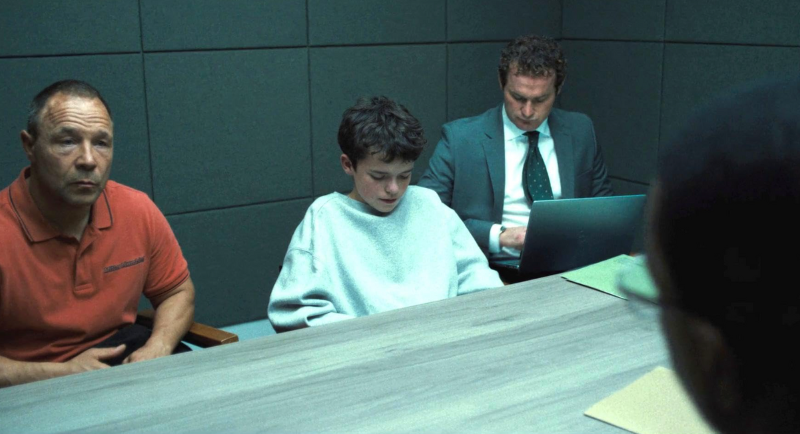By Bryce Coombe, managing director, Hypetap
The recent surge in popularity of documentaries like ‘The Search for Instagram’s Worst Con Artist’, ‘Apple Cider Vinegar’, and ‘Adolescence’ aren’t just a testament to our interest in good drama or compelling documentaries. Stories that dissect influencer fraud, questionable wellness trends, and the realities of teenage life online are a powerful mirror reflecting the evolving – and often complex – relationship between consumers, influencers, and the brands that seek their endorsement. They highlight the profound impact influencer content wields and the double-edged sword capable of both extraordinary positive influence but also significant damage.
For Australian marketers, understanding this dynamic is no longer optional; it is key to navigating our modern marketing landscape responsibly and effectively.
The core societal and marketing problem these documentaries illuminate is the impact of inauthentic influencer content and the subsequent erosion of trust. The ‘Instagram’s Worst Con Artist’ and ‘Apple Cider Vinegar’ story laid bare the ease with which fabricated personas and fraudulent claims can amass significant influence and lead to potential harm for followers when misinformation proliferates under the guise of authentic endorsement.

Bryce Coombe
These shows and documentaries highlight the immense impact that social media and influencers can have as a channel. But concerns about the media’s ability to impact and persuade an audience isn’t new. MTV’s Jackass was seen to promote physical harm, South Park promoted bad language and blasphemy, and video games have consistently been seen as triggers for violent behaviours for decades. Even Elvis was considered blasphemous and a concern for parents!
What is new is the micro media-ecosystems within which this content now exists and a feeling that these channels are not regulated or lack oversight. As highlighted in Netflix’s ‘Adolescence’ the potential impacts of echo-chamber media eco-systems where fringe attitudes and beliefs can feel acceptable or more mainstream than what they really are, can lead to the growth of dangerous attitudes and beliefs such as those seen in the manosphere.
This ultimately has a tangible impact on consumer perception toward social media and influencer as a channel. The challenge for brands is that audiences are engaged in social media as their primary media source more than any other channel. This means brands, influencers and influencer agencies have a bigger role than ever in ensuring audiences remain connected, and that faith and trust in the influencer and the brand remain paramount. When a brand aligns itself with an influencer who is later exposed for inauthenticity or harmful practices, the reputational fallout can be significant and long-lasting. This creates a challenging environment for marketers who rely on influencer marketing to build trust and drive engagement.

Kaitlyn Dever as Belle Gibson in the Netflix limited series ‘Apple Cider Vinegar’.
It means that social media – the very tool designed to foster connection – risks becoming a source of myopic media and lacks authenticity if not wielded with integrity.
The solution lies in a fundamental shift towards prioritising authenticity, transparency, and genuine connection in influencer marketing strategies.
Brands must move beyond simply chasing follower counts and instead focus on identifying influencers whose values genuinely align with their own and whose audience engagement is built on trust and authentic interaction. This requires a more rigorous due diligence process, going beyond surface-level metrics to understand an influencer’s performance, the nature of their content, and the sentiment of their community.
Beyond individual influencer selection, brands should invest in building long-term, meaningful partnerships. This allows for a deeper understanding of the influencer’s audience and the development of more integrated and authentic campaigns. By collaborating closely, brands can ensure the messaging aligns with the influencer’s existing content and resonates authentically with their followers. This collaborative approach also allows for greater control over the narrative and helps mitigate the risk of misalignment or misrepresentation.
The benefit of embracing this more responsible and authentic approach to influencer marketing is two-fold.

Stephen Graham, Owen Cooper, and Mark Stanley in Netflix’s Adolescence
Firstly, it builds and strengthens consumer trust. By aligning with credible and transparent influencers, brands can cut through the noise and establish genuine connections with their target audience. This fosters loyalty and advocacy, leading to more meaningful and sustainable engagement.
Secondly, it protects and enhances brand reputation. In an era of instant scrutiny and public accountability, avoiding the pitfalls highlighted by these documentaries is crucial for long-term success. By prioritising ethical partnerships and authentic messaging, brands can safeguard themselves from the reputational damage associated with inauthentic or harmful influencer activity.
Ultimately, documentaries like ‘The Search for Instagram’s Worst Con Artist’ and others serve as a potent reminder that influence is a powerful force, carrying with it significant responsibility.
For Australian marketers, the lesson is clear: the era of superficial influencer partnerships and unchecked endorsements is over. The future of successful influencer marketing lies in embracing authenticity, transparency, and genuine connection. By doing so, brands can not only navigate the evolving digital landscape but also harness the true power of influence to drive positive change and build lasting relationships with their consumers.
Top image: Bryce Coombe
